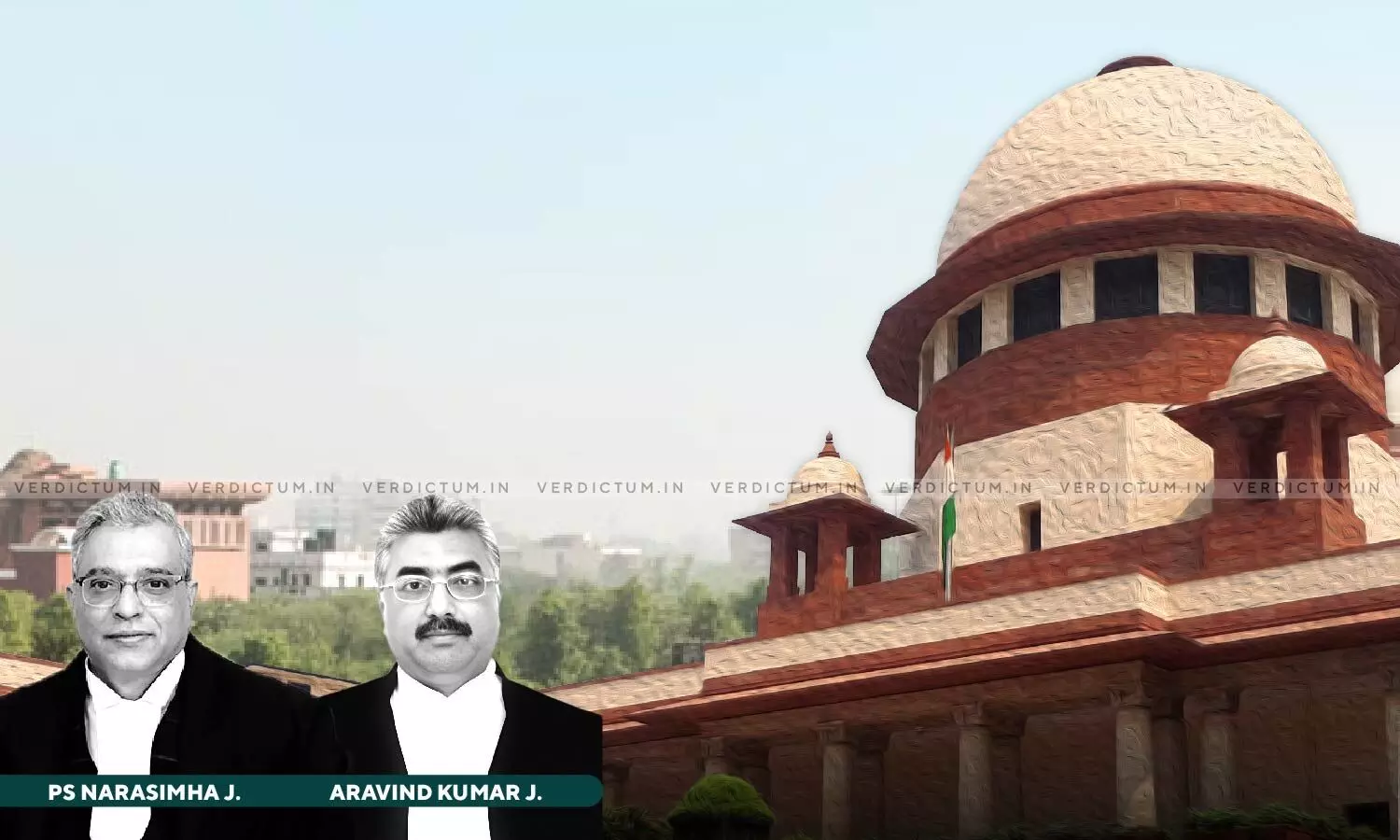
Consumer Protection Act| Onus To Prove That Service Was Obtained For Commercial Purpose Is On Service Provider, Not Complainant: SC
 |
|The Supreme Court held that the onus to prove that the service was obtained for a commercial purpose under the Consumer Protection Act, 1986 lies with the service provider and not the consumer.
The Bench reiterated that the Consumer Protection Act is a consumer-friendly and beneficial legislation intended to address the grievances of consumers which could not place a negative burden cannot be placed on the consumer to show that the service available was not for a commercial purpose.
Justice Pamidighantam Sri Narasimha and Justice Aravind Kumar observed, “Structurally, there are three parts to the definition of a consumer. We can deconstruct Section 2(7)(i) as a matter of illustration. The first part sets out the jurisdictional prerequisites for a person to qualify as a consumer – there must be purchase of goods, for consideration. The second part is an ‘exclusion clause’ [‘carve out’] which has the effect of excluding the person from the definition of a consumer. The carve out applies if the person has obtained goods for the purpose of ‘resale’ or for a ‘commercial purpose’. The third part is an exception to the exclusion clause – it relates to Explanation (a) to Section 2(7) which limits the scope of ‘commercial purpose’.”
"Since it is always the service provider who pleads that the service was obtained for a commercial purpose, the onus of proving the same would have to be borne by it. Further, it cannot be forgotten that the Consumer Protection Act is a consumer-friendly and beneficial legislation intended to address grievances of consumer", the court added.
Sr. Advocate Shailesh Madiyal represented the appellant, while Sr. Advocate Gopal Sankaranarayanan appeared for the respondent.
The Shriram Chits (India) Private Limited (Chit Fund) raised a plea arguing that the complainant company was excluded from availing any remedy as it did not come under the definition of a ‘consumer’ under the Act since the service obtained by the complainant was for a commercial purpose.
The Supreme Court noted that the District Forum incorrectly addressed the objection raised by the Chit Fund regarding the maintainability of the complaint. Both NCDRC and the State Forum too had agreed with the findings of the District Forum. “We fail to understand how the NCDRC failed to grasp the exact nature of the maintainability challenge,” the Court remarked.
Instead of examining whether the service availed on behalf of the complainant was for a commercial purpose, the Court pointed out that the District Forum determined whether the complainant fell within the definition of a “person” as defined in Section 2 (1)(m) of the Act.
“Judicial experience has shown us that the service providers most often than not take up a plea in their written version that the service obtained/goods bought was for a commercial purpose. For, if they succeed in their plea, the complainant is excluded from availing any benefit under the Act,” the Court remarked.
While examining whether the service obtained by the complainant was for a ‘commercial purpose,’ the Bench explained the significance of deconstructing the definition of a ‘consumer’ into three parts to determine the party on whom lies the onus to prove each of the different parts.
“If and only if, the service provider discharges its onus of showing that the service was availed, in fact for a commercial purpose, does the onus shift back to the complainant to bring its case within the third part, i.e. the Explanation (a) to Section 2(7) – to show that the service was obtained exclusively for the purpose of earning its livelihood by means of self-employment,” the Court held.
Accordingly, the Supreme Court dismissed the appeal.
Cause Title: Shriram Chits (India) Private Limited v. Raghachand Associates (Neutral Citation: 2024 INSC 403)
Appearance:
Appellant: Sr. Advocate Shailesh Madiyal; AOR Mrigank Prabhakar; Advocates Vaibhav Sabharwal, Divija Mahajan, Divija Mahajan, Sunidhi Hegde, Sakshi Banga and Amisha Devi
Respondent: Sr. Advocate Gopal Sankaranarayanan; AOR Anindita Mitra; Advocate Jhanvi Dubey